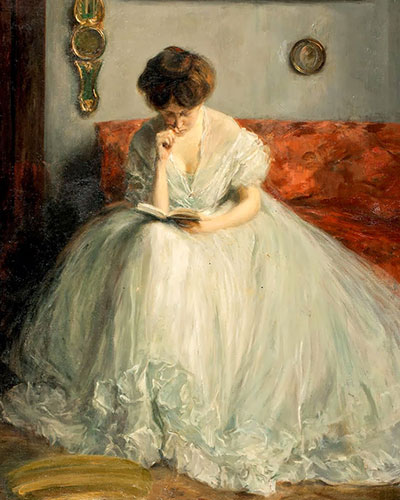I received the following email this evening from a long-time reader here. I have her permission to post it here. She would very much like to hear from anyone who has read the book His Needs, Her Needs. (I haven’t.)
Here is her note with identifying information removed:
Hi Sallie,
I wondered if you have ever read the vastly popular book His Needs, Her Needs: Building an Affair-Proof Marriage
by Dr. Willard F. Harley, Jr.?
Our pastor and his wife hosted a “romantic dinner date” event (or at least it was billed as such) (edit). He and his wife held a “conversation” with this book as the basis. Usually, my pastor is a fine expository preacher, but wow, I felt blind and fuzzy in a bad way as he and his wife fired away at the women of our church for “witholding sex” and “looking unattractive” for their husbands. It was a total redressing. The men got out very, very easy. Even my husband said he was uncomfortable and hurt for the ladies in attendance. He used the word “crass” to describe the pastor’s wife’s lecture to the women.
At the end of the event, the pastor and his wife handed out free copies of the book. My first concern was that I saw no mention of Christ on the dustjacket. The next day, I noticed there is no scripture in the book, and it is clearly a secular book, in my mind. Maybe I’m wrong, but it concerns me that so many Christian churches are passing this out like candy and holding retreats and seminars based upon it.
I contacted (someone – name removed), who had praised the book (edit). I told him I was struggling to see why this book was in keeping with the Bible, and could he give me some insight? He pretty much refused to because he believed my heart was hardened. I responded to him that it was not the case, and I was open to Biblical conviction. . . and that I would not assume he wouldn’t justify the book because he really couldn’t defend it.
If you have read it, I just wonder what you think about it. I realize you do not do negative book reviews on your blog, and I do not blame you for that! Desperately, I’m looking for someone, anyone that I respect in regards to Biblical knowledge/understanding to comment on this book.
My husband is meeting with our pastor tomorrow evening to discuss the issues we take with the book as well as the uncomfortable tone of the marriage conference. The pastor wouldn’t acknowledge the very respectful and timid letter I sent to him regarding the book. And apparently, we are told he would take it all much better if my husband alone were in attendance. I cannot even begin to tell you how this has aggitated my thinking and motivated my scriptural study this week. The book, quite honestly, preyed upon my insecurities even though I am in a stable Christian marriage with a man who does not threaten to leave me for my deficiencies. And thankfully, my Savior never threatened to leave me either despite my imperfections.
Has anyone read His Needs, Her Needs? Do you have any thoughts as to the biblical quality of the book? I have a couple of thoughts I will share in the comment section.
Thank you in advance!









 My Little House In The Big Woods Fantasy
My Little House In The Big Woods Fantasy
Here is part of what I wrote in one of my email responses. Since I haven’t read the book, I can’t comment on the content. But I did comment on the big red flag I got regarding the upcoming meeting and the letter she shared in our email exchanges:
I read this book about 5 years ago because it was influencing a marriage ministry I was involved in at the time. I don’t think it is horrible in that I really did learn a few things that pleased my husband.
However, comma.
I felt like it was a sin to read the book. If I am remembering correctly, almost every chapter involved falling into an affair (using story form to tell how a couple ended up in an affair situation). The lingering idea was that if so-and-so doesn’t do such-and-such then so-and-so’s spouse will be weak and Fall Into Temptation.
As someone who took a solemn vow to remain faithful to my husband until death, and took that seriously, I don’t like introducing the idea of affairs into my marriage’s environment, if that makes sense.
In addition, I remember noting some of “her needs” on the list that were not met in my life. This meant my husband had A Problem, right? I spent some time struggling with that, and then I finally realized that I was only struggling because some book had pointed out something that, though it would be nice perhaps, had NEVER bothered me before.
Another objection I recall having was the insistence on classify non-necessities as “needs.” I remember thinking that Paul learned to be content in both plenty and want, and that marriages tend to ebb and flow also, and perhaps learning to flourish in the seasons of life would be a better approach.
My personal opinion is that the book might be helpful for marriages which are really struggling with the wife and husband understanding each other’s perspective, or which have perhaps had affairs, but that introducing these ideas to a generally “innocent” marriage can do more harm than good.
With that said, I do not recall the book having a proper theology of marriage. It seemed to cross the line and almost make the relationship transactional in nature. Though I agree that it is helpful to know what my husband likes and try and provide it for him (and vice versa), I think that the concept of marriage being a picture of Christ and His Church is probably more helpful for a Christian marriage, as well as Paul’s general instructions on Christian community.
Thanks, Brandy, for jumping in. I was sure there were probably some women here who had read the book and could offer a helpful critique.
The more I think about the “don’t bring your wife to the meeting” thing and the fact that the pastor did not even acknowledge the letter the wife sent expressing her concerns, the more it irritates me. And offends me. This is one of the reasons we ended up in the church we did and the denomination we did (imperfections and all). This idea that the men alone have to wrestle with the problem just galls me, especially when it so heavily impacts the women in the outcome. And yet they are not given a voice and are given the biggest beat down in terms of where the “blame” is to go.
I’ll get off my soapbox now, but this just really pushes my buttons in a big way which I’m sure surprises no one. 🙂
I agree with Brandy’s assessment based on what I remember of the book – it gave me a feeling of discontent and frustrated expectations, instead of encouragement.
Husband and I only made it about 1/3 of the way through it. It is not the crazy patriarchal stuff that you are going to find a la Vision Forum, but it is just like any other checklist/works based program. I reject most books (parenting/ marriage/ Christian living) that start with “if you do this then this will happen”. There is no formula for this life, apart from simple faith in Christ and HIS work in my life.
Sounds like the problem with the emailer’s situation is abusive leadership. I WHOLEHEARTEDLY agree with Sally concerning your meeting with the pastor.
What a hard situation,
Blessings,
Amie 🙂
Brandy, though I have never read this book, skimming through the 1 star reviews on Amazon gave me a pretty clear picture of its message and I imagine your assessment is spot on.
I am convinced the only reason there are so many books marketed to Christians with a formula approach to marriage is to sell books. Period. Publishers know people, including Christian women, who read the books (men generally don’t )welcome this approach. It is so much simpler, they think, than opening the Word of God, discerning truth, and making application in their lives. It is also much more fun to entertain a wordly check list.
Here is a quote from one of the reviewers:
“But some of the “needs” are dreadful. For example, it is apparently a man’s need to have an attractive spouse so that he will be admired by his friends and colleagues. She needs to keep herself up, and if a little plastic surgery is called for, so be it. I completely understand this from a worldly perspective, but from a Christian one? The need to be admired by one’s friends and colleagues comes straight from pride and ego, not from a Christ-like walk.” Plastic surgery to fulfill a man’s fantasy? This is a Christian notion?
This reminded me of Mark Driscoll’s admonition to wives that they shouldn’t “look like wives.” It also brought to mind Fascinating Womanhood, which is still promoted in many circles today. The message sent and received is that it is all the wife’s fault. So sick of this message.
All these books and ideas come from a wrong view of relationships…..we are to one another each other. If someone really wants to build his or her marriage, he/she needs to look no further than those commands in Scripture that teach us how to apply “love thy neighbor.”
I agree with the idea of the pastor meeting only with the husband. It opens the door for the man to sin against his wife and he will probably be told he needs to reign her in for her rebellion. Sigh.
And of course marriage is all held together with the glue of God’s grace. We just celebrated our 36th anniversary and I know personally how very true this is!
My mom’s admonition was so true…”each for each other, both for the Lord.”
Sallie, I didn’t mention the pastor thing, but since the meeting is concerning marriage, I’d have a problem with the BOTH members of the marriage not being there, too! To be honest, I can’t imagine a pastor at my church doing something like that…
The more I read around, the more thankful I am for my (admittedly not perfect) church. 🙂
The whole setup sounds awful. You and your husband should not be the only ones calling the pastor (and his wife, too) on this one. It’s like they took the Titus 2 instructions for older women teaching younger women to love their husbands, and turned them entirely inside out and upside down.
I know absolutely nothing about the book, but it sounds like this “pastor” is not going to be receptive to any kind of “talking-to” by anyone. I’d just drop it and walk away, quickly in the other direction. You know that verse about casting your pearls before swine? Seems apt here.
Here is the follow-up email I received:
I’d like to add a bit of a different perspective on this book. We read this book (quite a few years ago – maybe 10 years?), found it to be very helpful and interesting, and didn’t notice any of the issues that you were concerned about. I’m not sure if I just missed some things, or what! But at any rate, we found it to be very helpful and enjoyable.
I am amazed at the description of this “romantic dinner event” and the message that the pastor gave (which certainly didn’t seem to fit with the “take-away” messages we got from the book). My husband and I read this book quite a few years ago, so maybe my memory is not so great, but I’m wondering if some of the things that the pastor was sharing were not necessarily from the book (or were biased more towards his perspective?).
Anyway, here are the general ideas that I remember were helpful to us from the book:
When we read the book we were not reading it because we were concerned about an affair (and in fact, concern about an affair has not crossed my mind, either then or since then!), however I did find it interesting to think about the idea that most people don’t set out intending to have an affair (although there are certainly plenty of people out there having affairs!). From what I recall, the basic idea of the book is that different people have different needs. The subtitle “how to affair proof your marriage” (or something like that) tied in because it was suggesting that if you looked to other people (besides your spouse) to fill those needs then you became closer to them and edged closer and closer to an affair (without intending to).
There were ten needs listed, with the idea being that five of them were often more important to men and the other five often more important to women (and a questionnaire in the back so the couple could rate which ones they valued most). In our case it led to some good discussion between my husband and I about which needs were true in our situation and brought some more awareness to which things were more important to one or the other of us. Here are the needs that were listed as top needs for many men – sexual fulfillment, recreational companionship, an attractive spouse, domestic support, and admiration. Some of the needs listed that many women value are – affection, conversation, honesty and openness, financial support, and family commitment. Of course these are not true in all cases, and each individual person and situation is different. It was a great way to start with a conversation for us though. I don’t recall any sort of encouragement to have plastic surgery (which seems to be a message others have gotten from this book) but rather an awareness that many men appreciate it when their wives take the time to look nice and take care of themselves (this does not mean we have to be perfect!). I think that most would agree that for many men that is an important factor for them, so it was more of just a realistic look at the situation. I do not recall feeling like it was attacking women or causing her to feel blame for not meeting her husband’s needs. In fact, I felt like my husband’s eyes were opened up to realize what things were important to me, and I truly felt like it made a big improvement in our marriage, just because we had a better understanding of our differences and what our deepest needs were (based on our conversations that came as we read this book together).
One of the things that this book did for us was bring up the idea that for both of us shared experiences (“recreational companionship”) were really important. In fact, I think there was some kind of a questionnaire at the back of the book that the husband and wife could fill out separately that rated their interest in many different types of activities. In our case, we learned some new things about each other and which things we liked to do (separately and together). We found ourselves beginning some new interests and activities that we could do together (and putting more of our time and money towards those) while not spending as much time on the ones that one of us did not enjoy. This does not mean that we don’t do things separately, and we’ve certainly maintained some of our own separate interests, but it did highlight the need for also including some shared experiences that we both enjoying doing together.
Anyway, from the descriptions I’ve been reading here I’m kind of wondering if this is even the same book. It makes me want to go check it out of the library and read it again! Maybe there is a newer version than the one we read? Anyway, I’m sure it is not a perfect book (there is not perfect book besides the Bible), but I did want to share that some people at least have found value in it and have enjoyed it.
Hi Kara B,
I was the one who e-mailed Sallie!
My issues with the book (and the conference using the book) was that this was not information that I felt fitting for a broad Christian gathering where we usually are fed spiritually-edifying material.
The book is secular with some underlying Bible themes, but it has no Biblical framework. For that reason, I find it very open to secular interpretation in absence of any clear statements about marriage and its reflection of the New Covenant. I don’t think the book is good for pre-marital counseling either because of this. If couples understood better God’s design of marriage from a Biblical standpoint (in lieu of the ridiculously applied “practical secularism” of Dr. Harley’s book), then I think there would be far fewer divorces. Especially amongst Christians. And there would probably be fewer marriages in the first place once Christians understood marriage from a Biblical standpoint.
Now, that all said, the book does not completely nullify itself from being a “tool” in a spiritual leader or counselor’s toolbox to help hurting couples seeking advice. It especially might benefit, say, an unbeliever married to a believer. Especially if the unbeliever has an aversion to religious materials and counseling.
The book is not godly ultimately. Read this review which I thought was fair and sound: http://wordtruth.com/BibleStudies/PastoralMinistry/hisherneeds.htm
Furthermore, the book seems to appeal to couples who are more in thinking with cultural ideals that really came to rise in the middle of the last century. These cultural ideals are the same ones that have prevented American Christians from being effective at doing the work commanded of Christ’s disciples. John Piper, David Platt and other Christian authors/leaders are now trying to help those who have bought into some of those ideals throw them off – and they are warning younger generations, who are quite disillusioned with the older generations and what they are leaving in way of a bad legacy, to take up a more authentic Christian life.
Because Dr. Harley’s book is 15 years old, I would say it is now dated and will not appeal to Christians who are truly looking to scripture to understand marriage. To me, the book is nothing but a checklist self-help book of 80s-like origin.
If we are to improve marriages, we need to look to resources that are clearly OF the scripture. That’s just my opinion.
Marriage isn’t about human needs or even happiness. A Godly marriage is one where each spouse realizes, yes, you are to work unselfishly, but you do not ever threaten to leave because you are unhappy. You stay and TRUST GOD that He will meet your needs where your spouse fails. The Bible is about unfailing love even when we are imperfect. Dr. Harley’s book misses the boat totally on that Biblical principle. And he certainly doesn’t cover sin in marriage and how to deal with it. That would be most helpful.
Our church was increadibly blessed by author Gary Thomas and his book, Sacred Marriage. the premise of the book is, what if marriage is not about making me happy but is about making me holy. (not that he’s against being happy, but you can’t put your happiness in the driver’s seat of your life and expect to remain happy, or married)
he held a 2 day conference at our church last year, and we had 5 couples on the verge of divorce recommit themselves to their marriages. (no one was being physically abused)
Interesting how secular books quickly become dated, but books based on a biblical framwork retain thier value.
MrsN
Mrs. Nehemiah,
The Gary Thomas book was suggested to me this week by a woman I know to be very serious about intentional Bible study as opposed to all the “fluff” that’s out there. She also mentioned John Piper’s This Momentary Marriage. I haven’t read them yet, but I did download some of Piper’s sermons on marriage and the New Covenant. . . if people, especially Christians, had more than a remote clue about what the scriptures say concerning marriage and God’s design of marriage, there would probably be more singles (never having decided to marry) and marriages would be more permanent. But our spiritual leaders MUST start teaching scriptural marriage more clearly instead of relying on these “fluffy” secular self-help tools to prevent people from straying because they are “not happy in the marriage”.
I have discovered this week that my own pastor, a quite decent preacher and teacher at that, doesn’t have a good grasp on what marriage is and the seriousness of it. At least, that is what it seems like to me. He seems anchored by cultural influence on the ideas of marriage and gender roles.
I’m going to pick up the Gary Thomas book, Mrs. Nehemiah!
Thanks, Em
Another book to add is The Mystery of Marriage: Meditations on the Miracle. It is an older book, but very good. Recommended by J.I.Packer, Elisabeth Elliot and Gigi Graham Tchividjian if that is helpful.
Sallie, thank for the book recommendation! My reading list is growing!
Emily